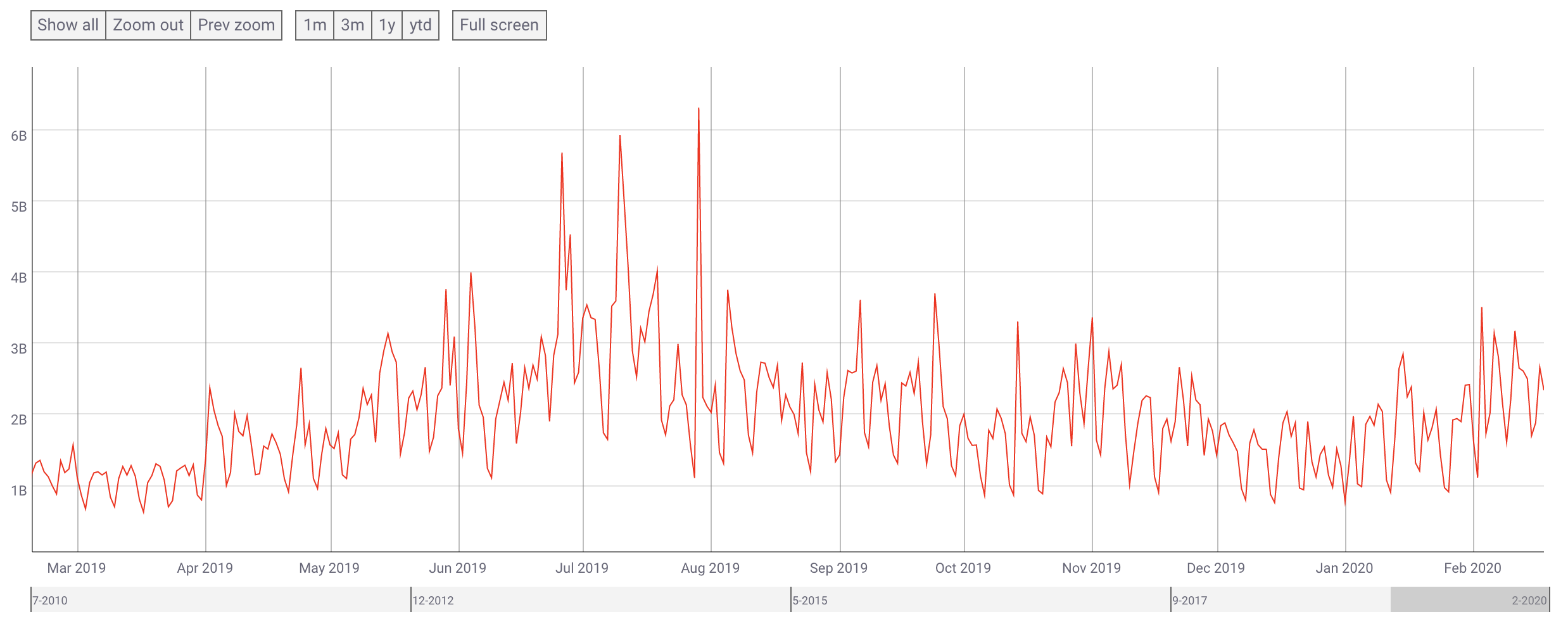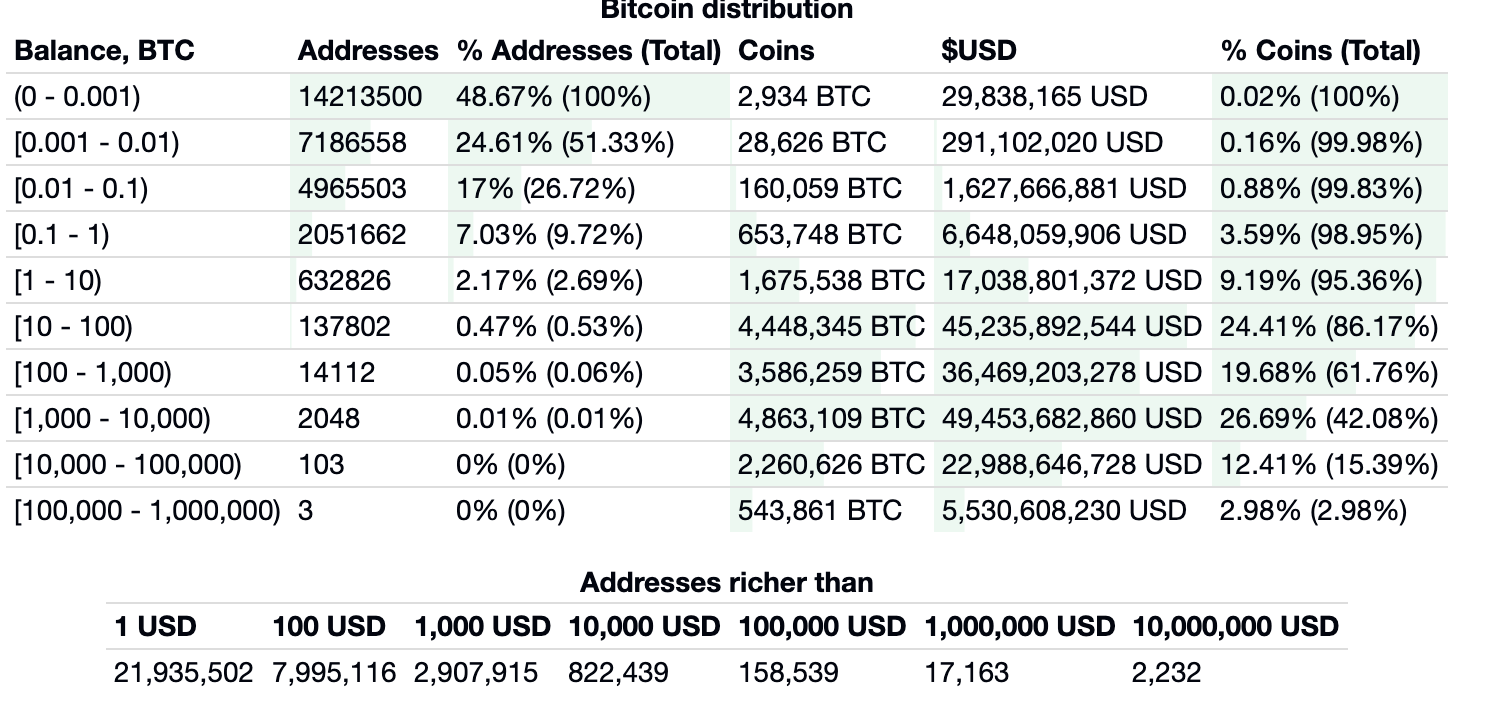The transaction volume in the Bitcoin network is constantly increasing. The annual transaction volume has grown steadily over the last 4 years to reach 727 billion USD, exceeding for example, Paypal.
In a tweet, Blockchain analyst Willy Woo compared the number of transactions to transactions within traditional payment providers. For example, the payment service provider Visa processed around USD 8.2 trillion in 2018, which corresponds to eleven times the volume of Bitcoin transactions. The previous cash flow in the Bitcoin network has increased by a factor of about 10 in the last four years. If growth remains constant, this would mean that in 2024 Bitcoin could have a transaction volume almost equal to that of the service provider Visa. By comparison, according to Statista, the total turnover of credit cards in Germany is about 110 billion euros. The annual Bitcoin transaction volume already exceeds that of credit cards by a factor of 6. This is concrete evidence of the growth of Bitcoin transactions.

The statistics above illustrate the daily transaction volumes in the Bitcoin network. At the beginning of 2019, these were still around 1 billion USD per day. Since then, the daily average is a good USD 2.5 billion per day.
Bitcoin transaction volume exceeds that of PayPal
In 2019, the Bitcoin transactions exceeded the transaction volume on PayPal. The volume of transactions processed by the US company in 2019 was 712 billion US dollars. It is interesting to note that PayPal employes approximately 22000 people, and according to its own statements, has more than 192 million active users in over 200 countries among its customers. PayPal also enables payments in more than 100 currencies.
The figures show, above all a steady growth of Bitcoin transactions. A relationship with payment providers is therefore interesting for information purposes only. It should be noted, however, that in the Bitcoin network many "internal" transactions are also written to the blockchain. For example, crypto exchanges transfer larger amounts of money to cold storage addresses. These transactions therefore do not involve a change of the beneficial owner. The secure storage of crypto-values is indispensable for institutions.
Wallets with small assets are continuously increasing
According to Woo, there is also an interesting development regarding the wallets. The number of wallets that hold a small fortune continues to rise. Wallets with assets of less than 0.01 BTC or less than 0.1 BTC have reached a new record high. According to Statista, a total of over 42 million Bitcoin Wallets had been established by the end of the third quarter of 2019. This number is also reflected on Blockchain.com. The chart shows a steady increase over the last three years from almost 9 million wallet addresses in Q3 2016 to a good 42 million addresses in Q3 2019. The number of wallet addresses has thus grown by an average of 155% over the last three years.

This development underlines a growth of users in the Bitcoin network.




